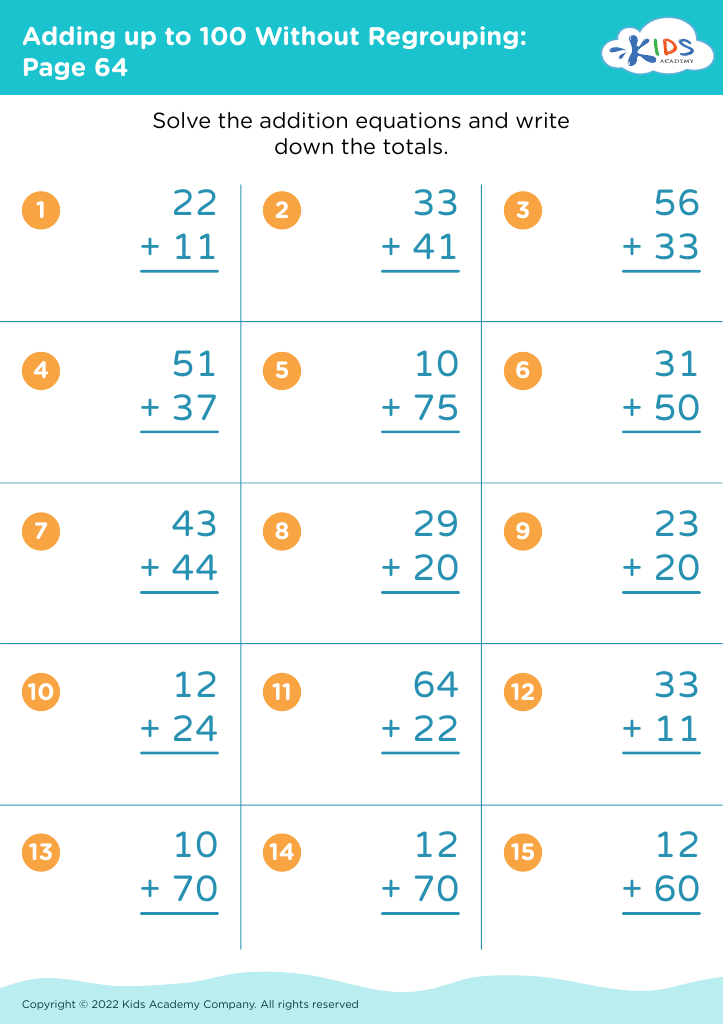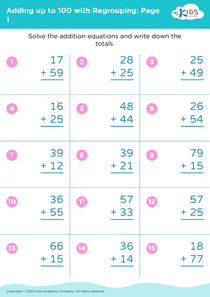Improve counting skills Adding up to 100 Without Regrouping Worksheets for Ages 3-7
3 filtered results
-
From - To
Enhance your child's counting skills with our "Adding Up to 100 Without Regrouping" worksheets, designed for ages 3-7! These engaging and interactive resources provide a fun way for young learners to practice addition without the complexity of regrouping. Each worksheet focuses on building number sense and improving basic math skills, helping children gain confidence as they learn to add numbers seamlessly. With vibrant visuals and easy-to-follow instructions, your child's excitement for math will soar. Perfect for use at home or in the classroom, these worksheets make counting practice enjoyable and effective. Start your child's mathematical journey today!
Improving counting skills, specifically adding up to 100 without regrouping, is crucial for children ages 3-7 as it lays the foundation for more advanced mathematical concepts. At this early stage, mastering counting and addition helps develop logical thinking and problem-solving abilities, which are essential not just in math but across all areas of learning.
Understanding how to add up to 100 without regrouping enhances a child’s numerical fluency and boosts their confidence in handling numbers. It cultivates a strong number sense, enabling children to recognize patterns and relationships between numbers, which is vital for future success in math. This skill also equips them to tackle practical situations, fostering independence in everyday activities involving counting and simple calculations.
Moreover, as children build these skills, they develop a constructive attitude toward learning and experimentation, critical traits for lifelong learning. Parents and teachers play a pivotal role in this process by providing engaging, hands-on activities that make counting enjoyable. Thus, focusing on counting skills not only enhances cognitive development but also enriches a child's overall educational experience, preparing them for more complex mathematics and everyday problem-solving as they grow.



















